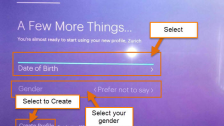How to Get CapCut Caption Styles?
Captions are crucial for video success: research shows they boost engagement, retention, and SEO, aiding discoverability for creators and marketers.CapCut’s popular auto-captions offer clarity, style, and ease of use, making them a top choice.Many now seek to replicate this style without the app. This article breaks down CapCut’s caption secrets and shows how to create similar free captions—no download needed. Read on for tips to enhance your next video.
- Author: Shine
- Update: May 28, 2025
What are the Most Popular CapCut Caption Styles

Unleash your creativity with CapCut: edit videos like a pro.
CapCut's caption styles have become highly popular on TikTok, driven by the app’s seamless integration and mobile-centric design. These high-contrast, easy-to-read captions are also widely adopted on platforms like YouTube Shorts and Instagram Reels, where clear, legible text is essential for engaging viewers.
After analyzing a variety of CapCut-edited content, several distinct caption styles have emerged, each tailored to different types of video content.
Below, we’ll break down the most common styles and how they enhance visibility, pacing, and tone across various formats.
1. Bold Text with High-Contrast Outline
This style uses bold text framed by a high-contrast outline or stroke.
The bold font enhances readability, while the outline ensures captions stand out against diverse background colors or video elements.
Ideal for dynamic videos with fast movement or vibrant backgrounds, as it maintains caption visibility throughout.
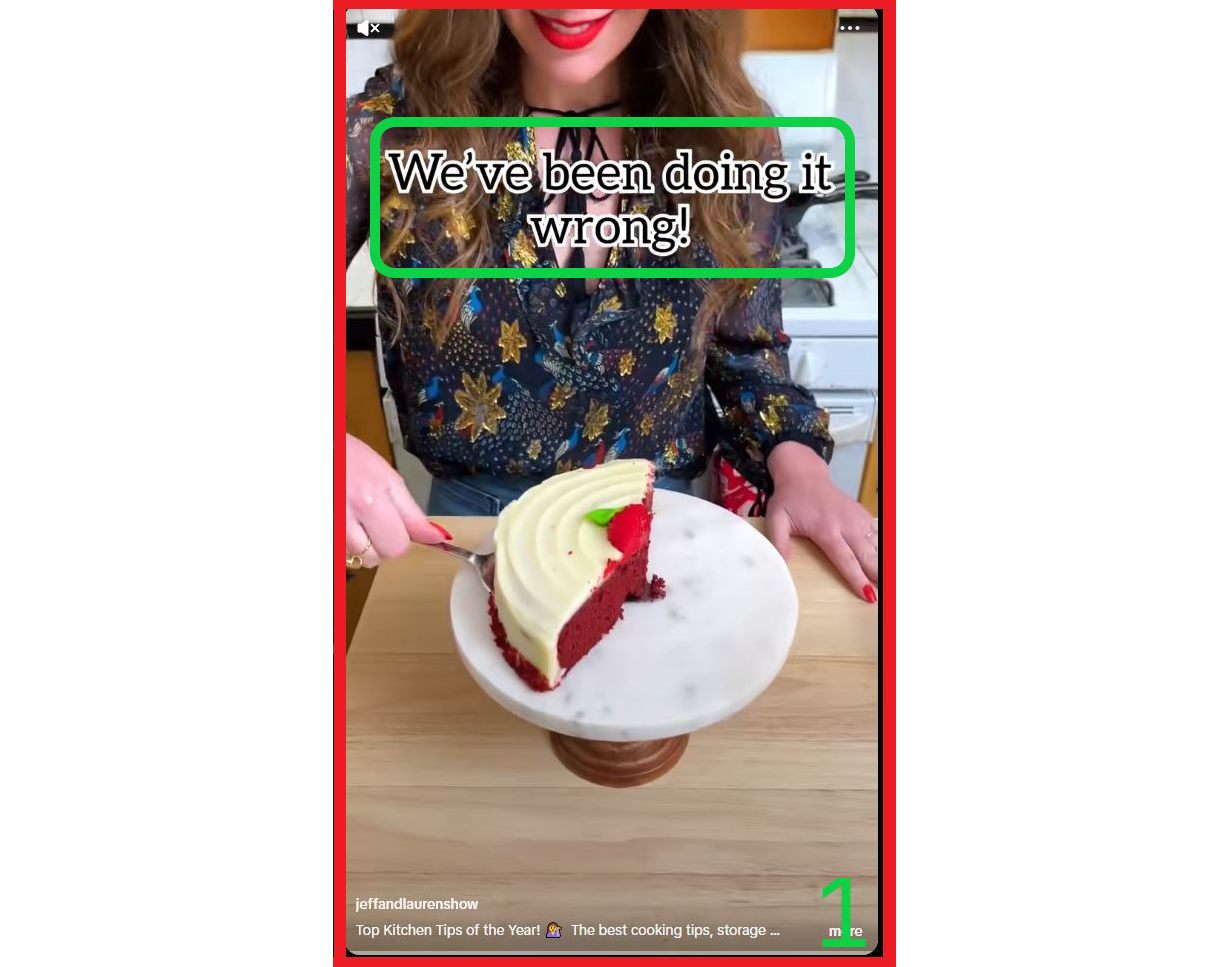
2. Text in a Solid-Color Textbox
This style places text inside a solid-color textbox.
It works well for videos with complex or cluttered backgrounds, as the solid box ensures text remains legible despite busy visuals.
Commonly used in instructional or tutorial content, where clarity is essential for viewer understanding.
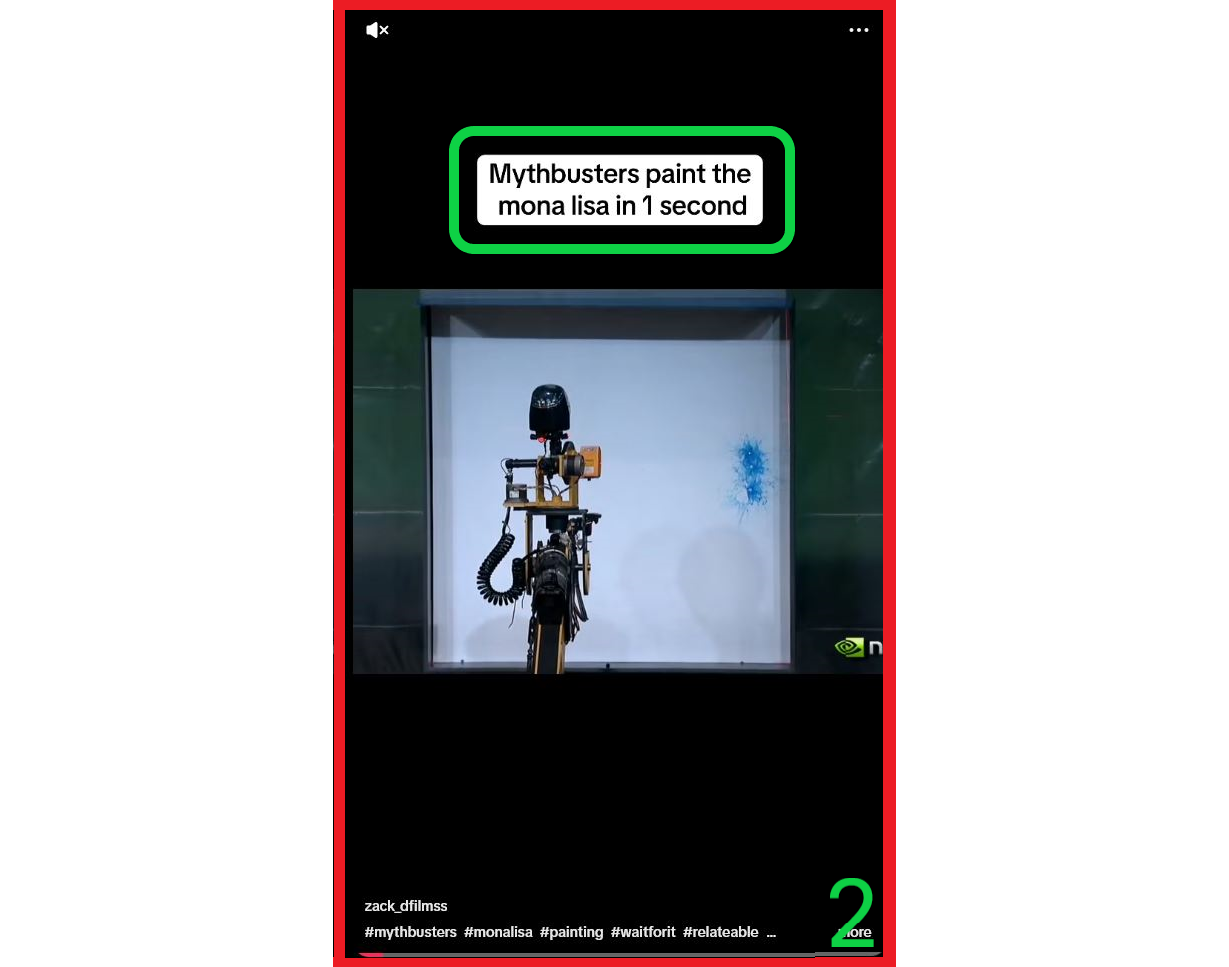
3. Bold Text with Outline and Active Text Highlight
This style merges bold text with an outline or stroke and real-time word highlighting.
The highlight emphasizes spoken words as they occur, improving pacing and accessibility for viewers who rely on subtitles.
It significantly boosts viewer engagement, especially when captions sync with key video moments, enhancing both comprehension and experience.

While these three styles differ physically, they also serve distinct purposes.
The first two styles are relatively simple to add while manually editing. However, the third style, with real-time text highlighting, often requires more advanced tools, such as an automatic caption generator.
How to Get CapCut Style Captions
While platforms like TikTok, Instagram, and YouTube offer built-in captioning tools, they often lack editing flexibility—particularly when customizing styles or exporting captions for use elsewhere.
For greater control, an AI Caption Generator is a superior choice. It enables you to quickly add captions to any video, experiment with diverse styles, and make precise edits—all without being confined to a single platform.
You can easily switch between formats and reuse captions across multiple channels, saving time while maintaining consistent, polished content.
To create CapCut-style captions, begin by uploading your media to the Kapwing online editor and accessing the Subtitles menu in the left-hand sidebar.
This will reveal multiple options, such as automatic captioning or uploading subtitle files (e.g., SRT, VTT).
For automatic caption generation, click Auto Subtitles. The tool will produce CapCut-style captions that are automatically synced to your video’s audio and aligned in the timeline.
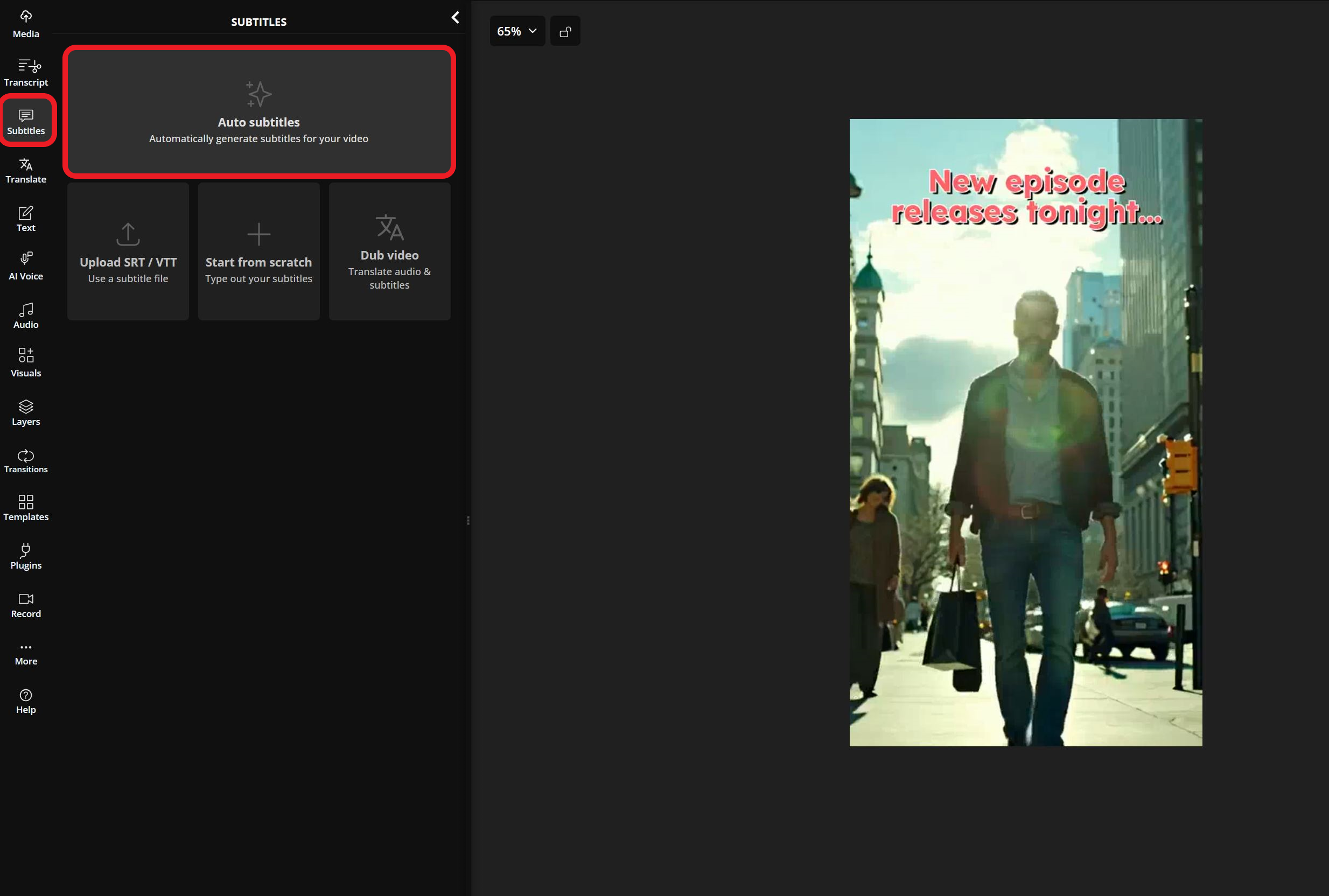
Once generated, use the Subtitles menu to adjust your captions.
This lets you fix spelling, punctuation, and line spacing for better readability.
For cleaner captions, place each sentence on its own line to help viewers follow the text easily.

On the right side of the editor, you’ll find additional tools to customize your captions.
Adjust font, color, animations, and other visual elements.
To instantly apply a new caption style, choose from preset styles at the top of the editing tools. This helps you quickly compare designs or find inspiration for creating your own unique style.
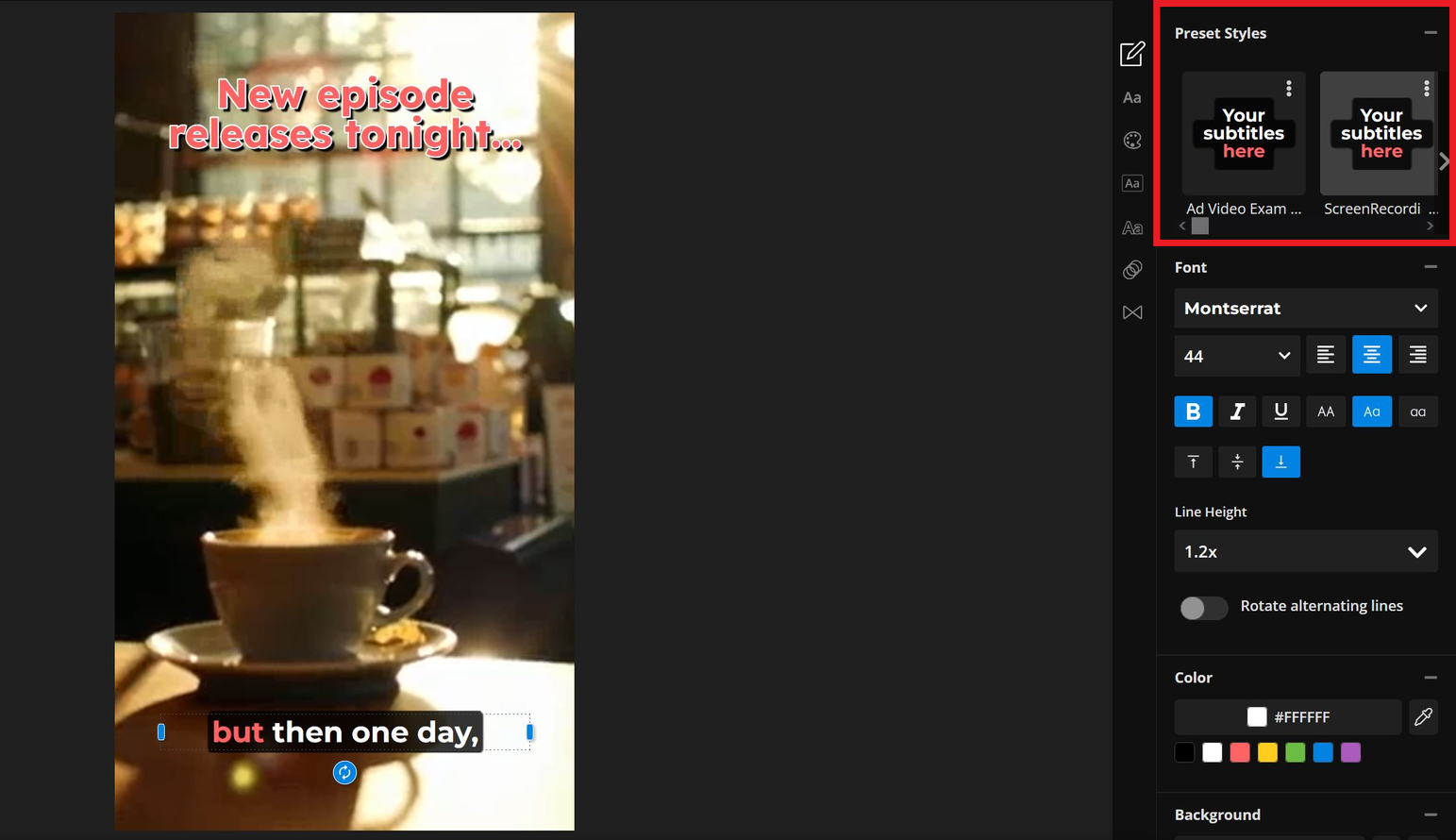
1.The font you choose sets the tone for your video.
For playful or lighthearted content, select bold, rounded fonts like Comic Neue or Poppins—these feel casual and friendly.
For educational, news-style, or professional videos, opt for clean sans-serif fonts like Inter, Helvetica, or Roboto, which convey a polished, neutral tone.
Regardless of style, prioritize readability with high contrast and consistent sizing—especially for mobile viewers.
To change the font, use the Font dropdown menu. Kapwing also lets you upload custom fonts to replicate specific styles.

2.The color of your captions is a subtle but impactful detail.
Strategic color choices can help captions either blend harmoniously with your video or stand out prominently as needed. Ensure caption colors align with your video’s theme for visual consistency.
To adjust text color, use the Color tool in the right-hand toolbar.
Choose from preset color options
Enter a specific hex code
Select saved brand colors for consistency
Key improvements:
Shortened "Smart color choices" to "Strategic color choices" for clarity
Used bullet points for color adjustment methods
Added "for clarity" and "for visual consistency" to emphasize intent
Maintained parallel structure in tool options
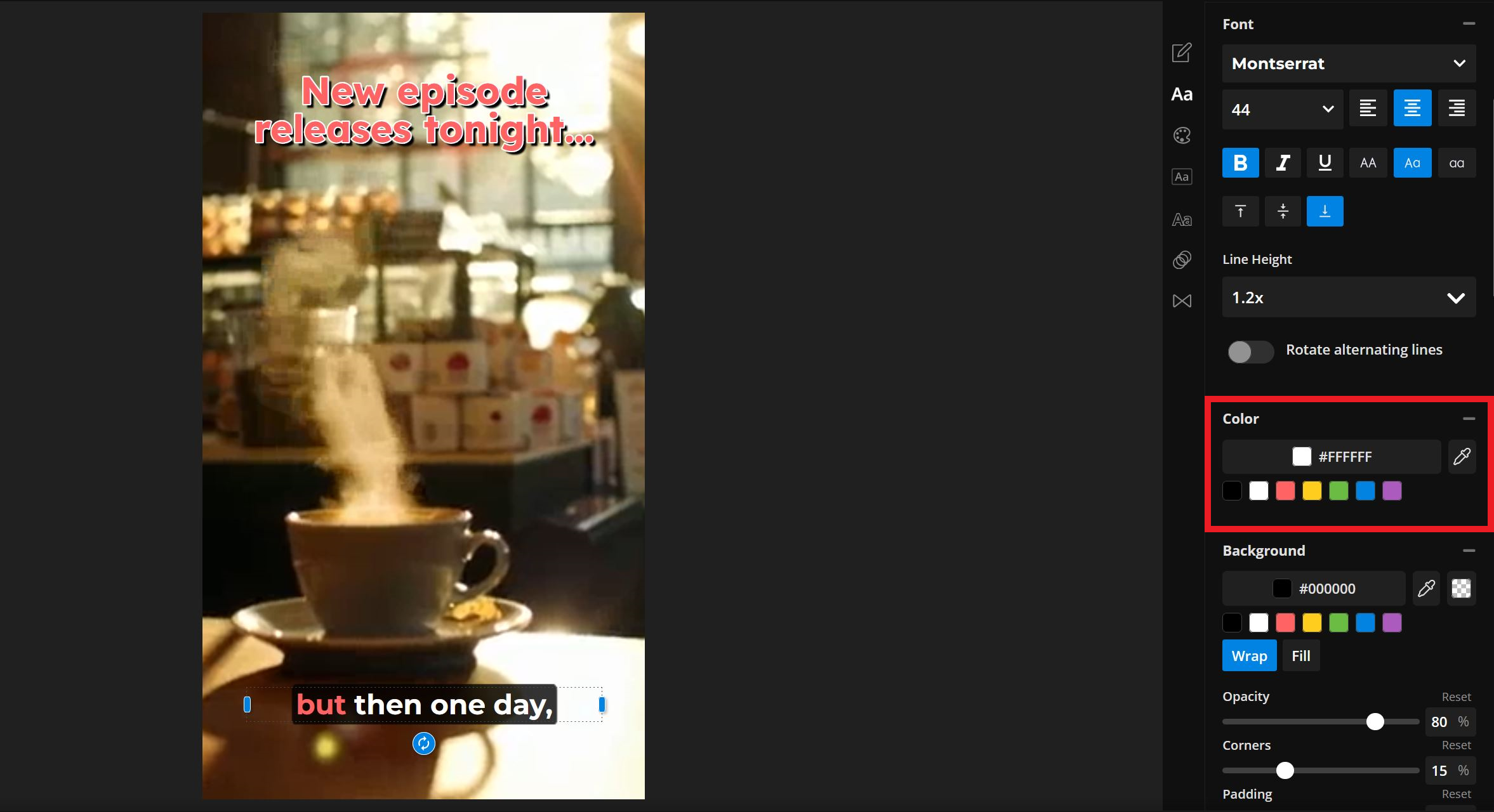
3. Text Outline
Adding a text outline is key to making CapCut-style captions visible, especially over busy backgrounds.
Try different color combinations to ensure your captions are clear and easy to follow without distracting from the video itself.
To adjust the text outline, locate the Text Outline option within the Border tool group.
Select your preferred color for the outline.
Use the slider below to modify the "weight" (thickness) of the outline:
Sliding right increases the outline thickness.
Sliding left decreases the outline thickness.
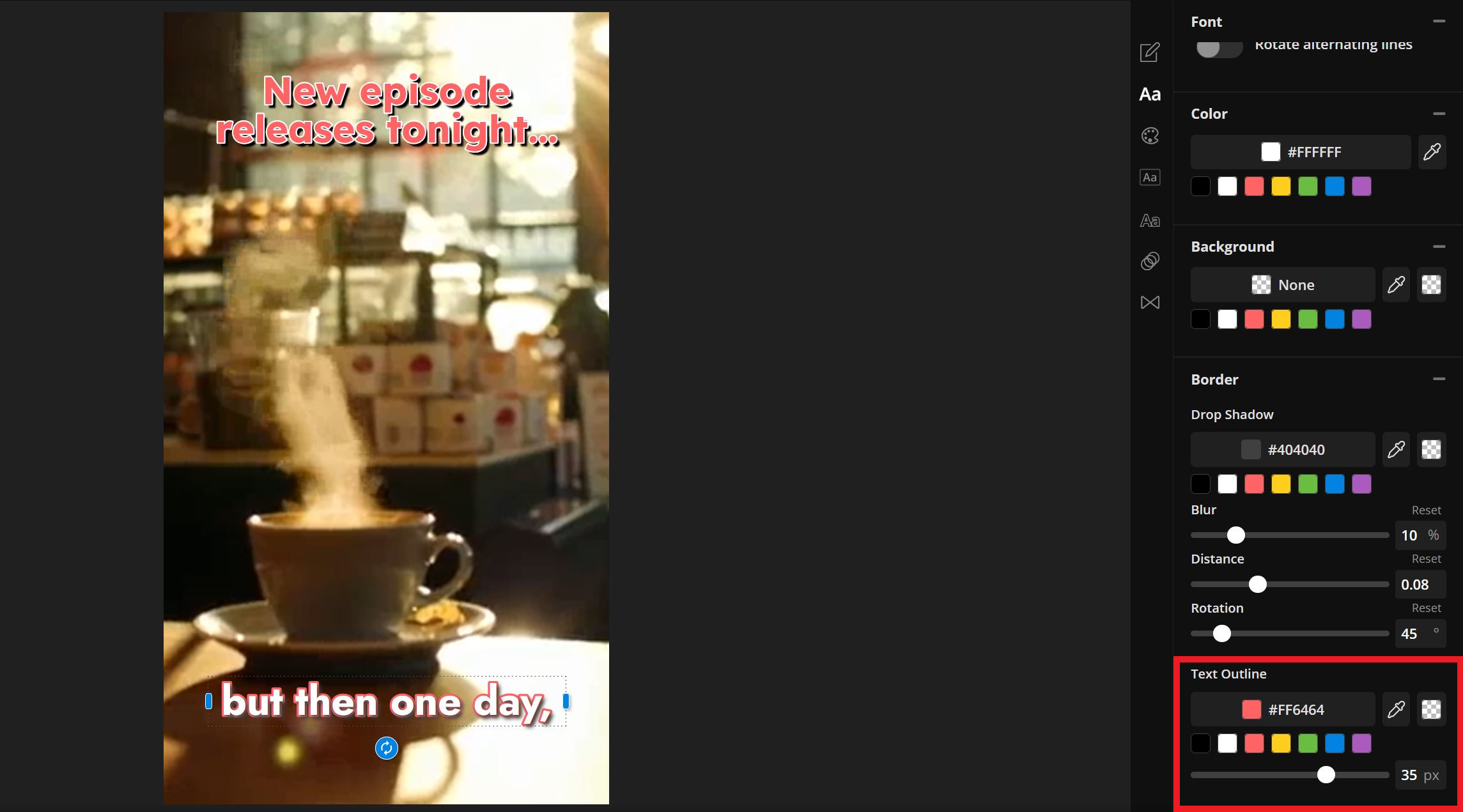
By adding a text outline to your captions, you can easily replicate a CapCut-style caption like those shown earlier. For a full replication of specific styles, consider adding a background color—this option is available in the same text editing menu as the other tools.













